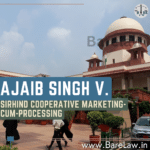
Introduction
Grant v. Australian Knitting Mills (1936) is a famous legal case in commonwealth tort law of carelessness as applied to the production and marketing of consumer goods. It highlights that manufacturers owe consumers certain obligations and forms the basis for some protective statutes in consumer protection.
Background:
The complainant, Doctor Grant, bought a pair of underpants at one store which were made by Australian knitting mills ltd. They contained an excess amount of sulphur used during processing thereby causing him serious skin inflammations. Consequently he filed a lawsuit against Australian knitting mills alleging negligence and breach of contract.
Key Arguments and Legal Principles
In this case, the legal issues revolved around Negligence and Manufacturer’s duty to take care while making goods for use by customers. Dr Grant’s advocate argued that all manufactures must ensure their products are safe for human beings’ use; however, they said that there was no privity between dr grant and the manufacturers hence their questionability
A crucial legal principle involved in this case was the implied warranty of safety in consumer goods. The case also dealt with manufacturer’s responsibility when there is no direct contractual relationship with the end user.
The Decision:
For example, it was in 1936 before Privy Council when it heard this matter; it served as a turning point for negligence law This judgment held that producers have duty to take care outside whatever obligations they assume under contracts with buyers The ruling goes further on Donoghue v Stevenson putting it into a contractual context
Implications and Legacy
The consequences of this decision were far reaching across the Commonwealth’s legal system It has entrenched strict liability principles on which modern product liability laws are premised . The significance of this case as a milestone towards developing negligence law particularly in relation to product liability cannot be overemphasized
Grant v. Australian Knitting Mills reaffirmed how important it is for manufacturers to take into account consumer protection while designing their products.
Conclusion:
Grant v. Australian Knitting Mills (1936) is still a leading case in terms of the development of tort and consumer law in the Commonwealth. It also emphasizes on why it is necessary for manufacturers to be responsible and avoid negligence which has formed the foundation of product liability jurisprudence.





